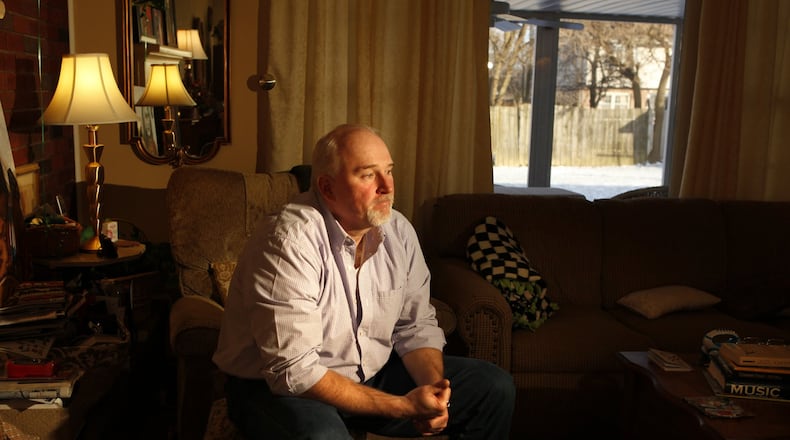The transcripts involve the 1990 grand jury testimony given by Scott Moore, then the lead Miami Twp. investigator on the case, and three rape victims.
David Owens, an attorney for Gillispie, alleges Moore built a case around Gillespie, fabricating, destroying or suppressing evidence including campground receipts that may have proved Gillispie was in Kentucky during the August 1988 crimes.
“You want the earliest sworn testimony of witnesses,” he said. “It’s most important here, given the amount of time that is that has transpired.
In March 2019, Gillispie also sued the state asking the court to declare him a “wrongfully imprisoned person.” The designation would allow him to seek monetary relief in the Court of Claims, according to court records.
Based on the grand jury testimony, Gillispie, now 56, was indicted for the 1988 rapes and kidnappings of three women in two attacks. He was convicted of three counts of rape on Feb. 12, 1991 following a jury trial. The court granted a second trial, at which he was again convicted on June 12, 1991. The Ohio Innocence Project took on Gillispie’s case, resulting in a federal magistrate ruling in 2011 that information withheld from the 1991 jury prevented a fair trial. Gillispie was released from prison three days before Christmas in 2011.
Montgomery County Common Pleas Court Judge Steven K. Dankof ruled on March 25 that Gillispie had a “particularized need” for the grand jury transcripts and ordered them to be released.
In his trial court opinion to release the transcripts, Dankof said the state had “failed to establish any need for continuing secrecy.”
“Rather, the State urges this Court elevate secrecy to an absolute prohibition against producing Grand Jury Testimony in every case, simply for secrecy’s own sake,” read Dankof’s ruling.
The Montgomery County Prosecutor’s Office asked the trial court for a stay, which was denied, and took the matter to the Ohio Second District Court of Appeals.
In its appeal, the Prosecutor’s Office claims the trial court “abused its discretion and erred as a matter of law” in ordering a complete release of grand jury materials. Dankof’s March 25 decision also dissolved all prior protection orders, which would allow the transcripts to be “disseminated and shared indiscriminately with anyone,” according to the Prosecutor’s Office.
The Montgomery County Prosecutor’s Office argued that releasing the grand jury transcripts would have a “chilling effect” on potential future grand jury witnesses.
“The Montgomery County Prosecutor’s Office holds the secrecy of grand jury proceedings as an important and fundamental protection for witnesses and the accused in the grand jury process,” said Greg Flanagan, spokesman for the office.
The high bar set for releasing grand jury testimony hasn’t been cleared, Flanagan said.
“In this case, we do not believe that standard was met,” he said. “We argued this to the trial court, however, the trial court disagreed. We have sought leave to appeal.”
Owens said there is a high standard, but after more than 30 years following multiple trials, hearings and civil proceedings — and the fact that Gillispie can never be tried again for the same crimes — the rational is gone for keeping the transcripts sealed.
“The reasons for secrecy could not possibly be lower in this case,” he said. “It’s disappointing. The state seems to just want to fight this at every juncture.”
In October, Moore appealed to the United States Court of Appeals Sixth Circuit a federal District Court decision that denied him federal and state immunity in Gillispie’s civil rights case.
When reached by phone Friday, Moore’s attorney Todd Raskin said he was unable to talk.
Owens said both the state and federal appeals have again stalled Gillispie’s pursuit for justice.
“We’re just trying to get a trial so Gillespie can have his day in court,” he said. “It’s an uphill battle at every moment.”
What is a grand jury?
Grand jury proceedings are held to determine if there is enough evidence to indict a person of an alleged crime; they do not determine innocence or guilt. Grand juries are held in secret, without a judge and are led by the prosecutor. Only the prosecutor, their witnesses, a court reporter and nine jurors are present. Neither the accused nor their attorney are present. Seven votes of the nine jurors are required for an indictment, according to the Supreme Court of Ohio.
About the Author

